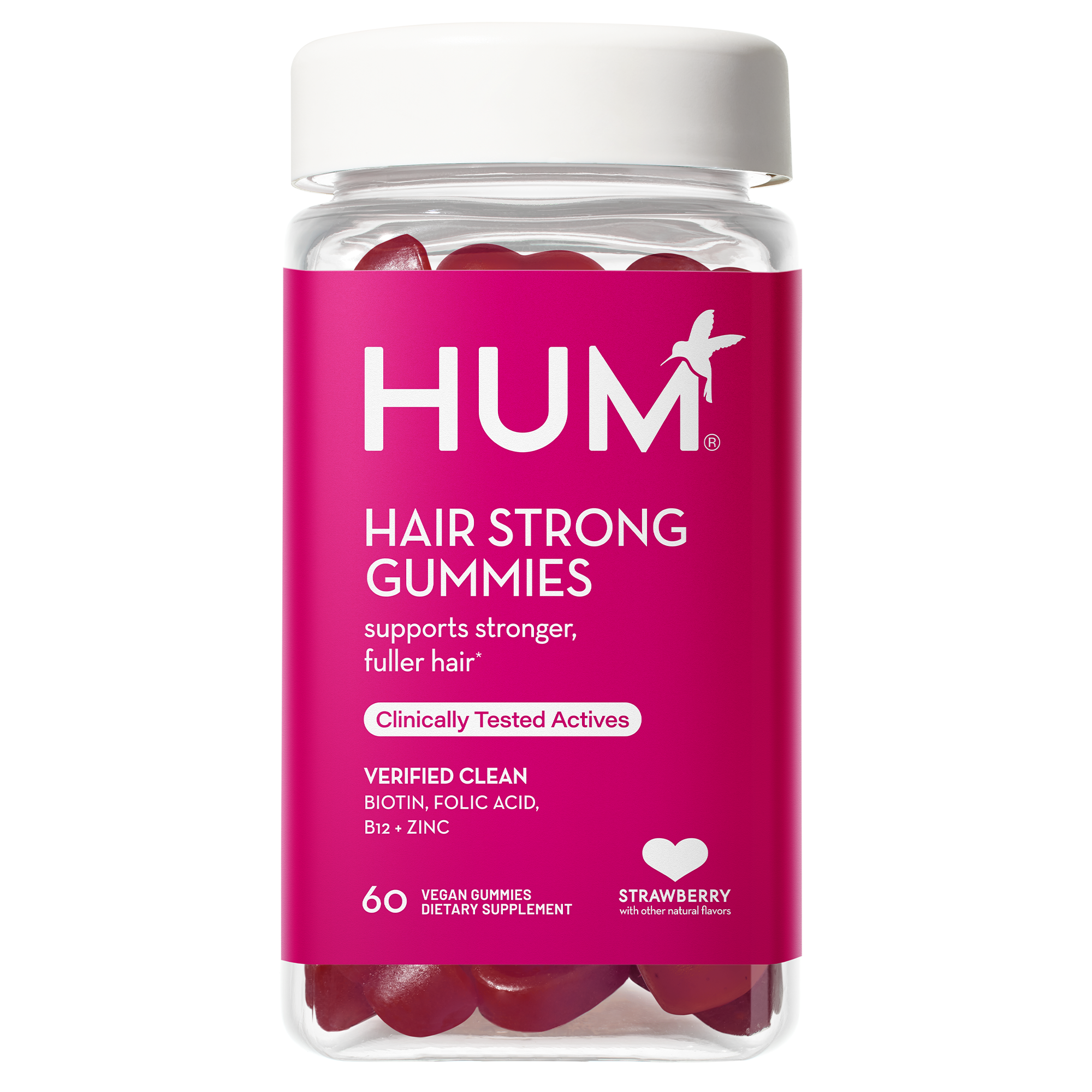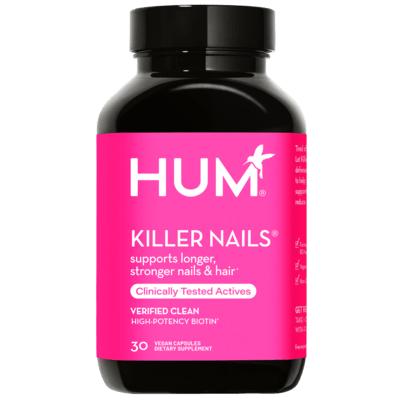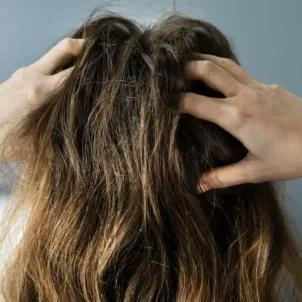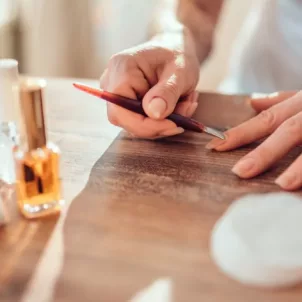Is There Such a Thing as Too Much Biotin?
How much better is a manicure and a blowout when you have smooth, unbreakable nails and split-end free hair to work with? You can potentially thank biotin for that. If you’ve looked at hair and nail supplements, you’ve probably seen biotin, a key B-vitamin, as the universal ingredient. But can it actually nourish your hair and nails the way they need to be? And what’s the correct biotin dosage for adults—how much biotin is too much?
Registered dietitian Jessica Bippen, MS, RD, looks into all your biotin questions. Here’s everything you should know about biotin, where to find it, and how much your body needs.
What is Biotin?
Biotin (aka B7) is one of the many water-soluble B-vitamins that are necessary for your body to function. Its main role in the body is as an important cofactor that’s essential for metabolizing macronutrients in order to regulate your metabolism. Another key role of biotin is in the nervous system, by helping the brain transmit nerve signals. B vitamins in general protect your brain and improve your memory and concentration.
You can find biotin in a number of different food sources including some nuts and legumes, eggs, dairy, and certain meats and fish (more on the nutritional aspect later). After you digest foods containing biotin, it gets absorbed in the small intestines and stored in the liver.
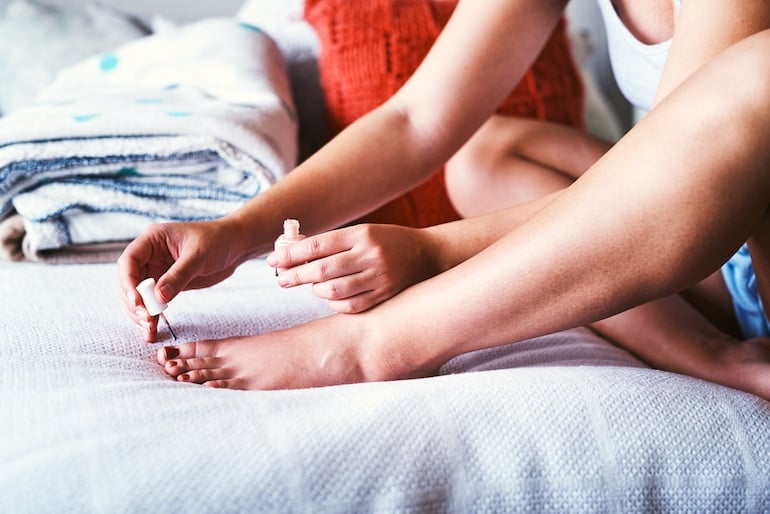
Biotin Benefits
Biotin plays an important role in metabolizing glucose, fatty acids, and amino acids. Its role as an enzyme in the metabolism of amino acids is crucial for protein creation, which results in building strong healthy hair and nails.
While the research is limited, clinical trials suggest that it can help reduce brittle nails that easily split or crack. The same goes for healthy hair. Studies show that individuals with a biotin deficiency can benefit from supplementing biotin to help with hair growth. Hair is easily damaged by sun-exposure, overwashing, and constant heat from the hairdryer or other styling tools. Biotin plays a role in building the protein that helps regrow healthy hair, which is why it has become such a popular hair and nail supplement.
Signs of Biotin Deficiency
Symptoms of biotin deficiency typically come on gradually. These include:
- Thinning hair and hair loss on all areas of the body
- Brittle nails
- A scaly red rash around the eyes, nose, and mouth
In the most severe cases, a biotin deficiency can lead to:
- Neurological conditions such as depression
- Lethargy
- Hallucinations
- Tingling of the extremities
Typically though, a biotin deficiency is rare. However, if you’re not eating a well-balanced diet or are avoiding certain food groups, you may have a greater deficiency risk. In addition, those with a genetic disorder for biotinidase deficiency are at risk as it prevents the body from releasing free biotin. Pregnant and lactating people should also be mindful of their intake. At least a third of pregnant people develop a slight deficiency regardless of normal intake, because the process of lactation lowers biotin levels (more research is still needed to figure out this exact connection).
How Much Biotin Do You Need?
Adults need at least 30 micrograms (mcg) of biotin per day. If you’re eating a well-balanced diet that includes lean protein and plant-based foods like veggies, nuts, and seeds, you’re likely hitting your base level.
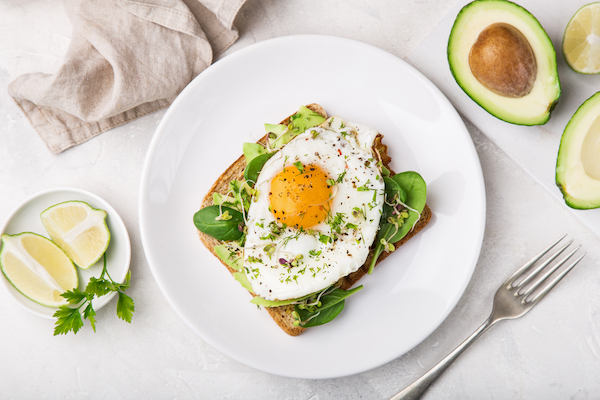
Biotin-Rich Foods
Some of the top biotin-rich foods include:
- Eggs
- Avocados
- Whole grains
- Sweet potatoes
- Broccoli
- Almonds
- Onions
- Peanuts
How Much Is Too Much Biotin?
Actually, there’s no official upper limit for biotin because it’s water-soluble, which means your body only stores what it needs. The rest is excreted in your urine. The normal recommended biotin dosage for adults is 30 to 100 micrograms (mcg) per day.
But there’s no evidence of high levels of biotin being harmful or causing toxicity, which is why you’ll commonly see biotin supplements containing 5,000 to 10,000 mcg. (These levels ensure your body gets as much biotin as it needs and absorbs it in the small intestines.) So is more than 10,0000 mcg too much biotin? Or, is 15,000 mcg too much biotin? Not exactly. Research has suggested that even mega-doses of 300 mg (that’s 300,000 mcg) to help with treating multiple sclerosis have no adverse side effects.
One caveat is that taking a lot of biotin can interfere with lab test results. The technology used to measure levels of thyroid hormones and vitamin D, for example, can show high or low test results. For this reason, it’s important to inform your doctor if you’re taking a biotin supplement. The other side effects of too much biotin are pretty nonexistent, but if you take too much of the biotin supplements beyond 10,000 mcg, you could encounter digestive issues or even skin rashes.

Should You Take a Biotin Supplement?
If you are avoiding certain biotin-rich foods or are experiencing brittle hair or nails, you may benefit from supplementing! Since biotin is water-soluble, you don’t have to worry about excess. The little extra boost may do wonders for your hair and nails. Our favorite? HUM Nutrition’s Hair Sweet Hair, which contains biotin and other nourishing ingredients to help support soft, strong hair.


